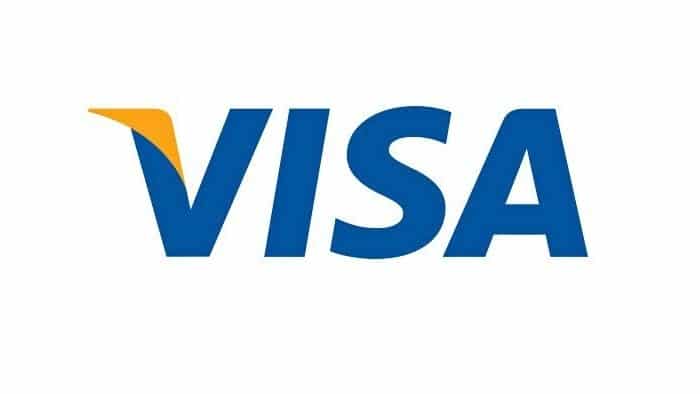Finance
Visa Defines New Era of How Money Travels Abroad

Remittances are not only a lifeline for millions of migrant workers and their families, they are also vitally important for the prosperity of many developing economies around the world. As the amount of global remittance inflows continues to reach new records1, 53% of surveyed consumers are turning to digital apps to send and receive funds around the world.
Visa unveiled its “Money Travels: 2023 Digital Remittances Adoption” research report, a survey of over 14,000 consumers across ten countries, revealing that digital remittances are quickly becoming the most popular way to move money internationally, when compared to going to a physical bank or branch (34%); sending cash, checks or money orders by mail (12%); or giving money to another person who is traveling to their home country (11%).
In conjunction with the study, Visa launched “Money Travels,” a new podcast series unearthing how payment-related topics unfold differently in various places around the world and highlighting the stories of real people, payment experts and partners.
“Fast, easy and secure payments can make a profound difference to families, communities and economies around the world,” said Ruben Salazar, Global Head of Visa Direct. “This new research shows incredible acceleration of digital payments, but there is still more the industry can do to bring streamlined remittances within reach for more migrant workers and their families who rely on these lifeline payments to do everything from pay for food, education, or even unforeseen medical costs.”
The Money Travels: 2023 Digital Remittances Adoption study examines how consumers send money abroad, diving into the rates, methods, and reasons for sending and receiving these lifeline payments. Highlights include:
- Digital remittances are the preferred method amongst surveyed consumers across all surveyed countries. 60-70% of surveyed remittance users across North America have used an app-based digital payment method to send/receive money internationally, whereas only 10-15% of surveyed U.S. remittance users rely on cash, checks, and money orders. Similarly, sending money through digital apps is the most popular method for 69% and 65% of surveyed consumers in Saudi Arabia and the United Arab Emirates, respectively, compared to digital from a physical location, cash, or check.
- Adoption of app-based digital payments is high, with low barriers to usage. Three-quarters of surveyed remittance senders in Mexico and Peru have used app-based digital payment methods, while two-thirds of recipients have used an app. Additionally, in Europe, 62-67% of surveyed consumers across France and Poland who have sent international remittances have used digital methods.
- Remitter pain points include but are not limited to high fees and issues with calculating exchange rates. In total, 38% of surveyed consumers on the send side in the United Arab Emirates report fees being too high when sending digital remittances, and 37% of surveyed consumers on the send side in Singapore report issues with calculating the exchange rates.
- App-based digital payments are considered the most secure method by a strong proportion of remittance users across countries. In Singapore, a key remittance country on the send side, three out of five (61%) surveyed consumers reported using digital-only means for sending money internationally thanks to ease of use and security (53%).
- Rates of sending and receiving remittances vary widely by country. Of the countries surveyed, Poland, Mexico, Peru and the Philippines receive remittances at higher rates than sending them. France and Singapore see higher send rates.
- Sending more money, more often, is easier than ever. Over half of those who have sent money internationally do so about once per month or more often in the United Arab Emirates (71%), Saudi Arabia (64%) and the Philippines (48%). Among those who have received money 80% do so at least a few times per year in Saudi Arabia, followed by the Philippines (77%), and Mexico (72%).
Visa works in collaboration with global remitters such as Brightwell, Maya Philippines, MoneyGram, Paysend, Remitly, Western Union and Xoom to help enable efficient money movement through digitized remittances. “One of our visions for Visa Direct is to create new opportunities for financial inclusion and wealth building by helping to simplify cross-border payments and streamline the way money travels,” continued Ruben Salazar.
A new “The Connective Power of Remittances” Nonstop Guide explores the rise of digital remittances, the tales behind these types of payments and how the digital revolution is helping streamline remittance payments. For more information about Visa Direct, please visit: https://usa.visa.com/run-your-business/visa-direct/payment-guides/remittances.html
Survey Methodology
This survey was conducted by Morning Consult during December 14-28, 2022 among a sample of 14,000+remittance senders and receivers across the U.S., Canada, Mexico, Peru, France, Poland, Philippines, Singapore, United Arab Emirates, and Saudi Arabia. The interviews were conducted online. Within each country, survey respondents are weighted based on census estimates for age, race/ethnicity, gender, education, and region.
Source: Visa




















































